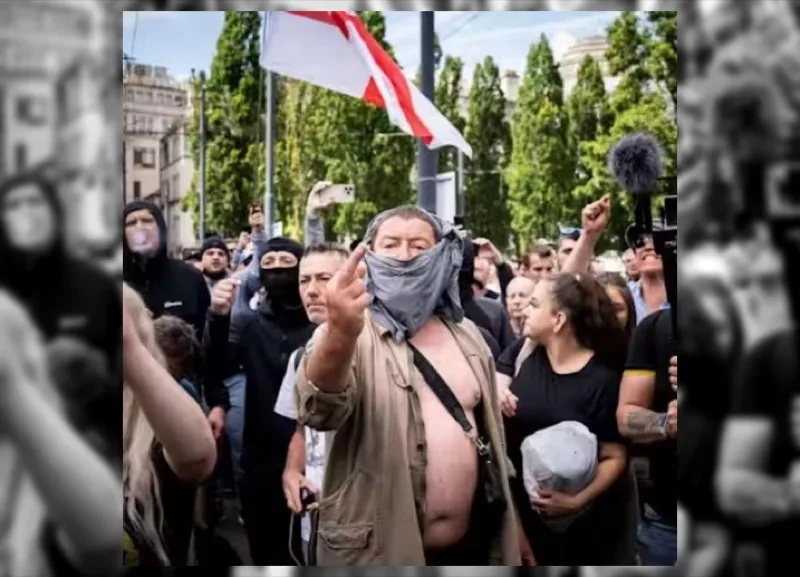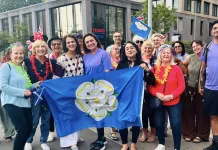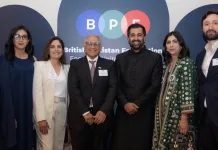
Prime Minister announces “standing army” of specialist officers on standby to help tackle riots after an emergency COBRA meeting. It comes after far-right rioters attacked mosques, Muslims, hotels housing asylum seekers and caused widespread violent unrest across the country.
The sky over Britain darkened with widespread unrest in the aftermath of the horrific murders of three innocent children, which also left eight other children and two adults seriously injured.
Following widespread misinformation that the attacker was Muslim, hate spewed across the length and breadth of the country with around 35 far-right anti-Muslim rallies witnessing a troubling resurgence of fascist extremist voices.
Riots erupted across towns and cities, with 420 people arrested so far.
Cardiff-born 17-year-old Axel Rudakubana, was named as the suspect in the stabbings in which Bebe King, six, Elsie Dot Stancombe, seven, and Alice Dasilva Aguiar, nine, were all killed at a dance class.
But the murders were seized on by anti-immigrant and anti-Muslim groups as misinformation spread online that the suspected attacker was a radical Islamist who had just arrived in Britain.
Police have blamed online disinformation, amplified by high-profile figures for driving the violence. One of the most prominent of these, Stephen Yaxley-Lennon (aka Tommy Robinson) who led the anti-Islam English Defence League group, has been blamed by media for spreading misinformation to his followers on X.
Elon Musk, the owner of X, also weighed in on the violence. Responding to a post on X that blamed mass migration and open borders for the disorder in Britain, he wrote: “Civil war is inevitable.”
The (false) claim that the suspect was an asylum seeker or immigrant has been viewed at least 15.7 million times across X, Facebook, Instagram and other platforms, a Reuters analysis showed.
Separately, a Channel 4 analysis showed that 49% of traffic on social media platform X referencing ‘Southport Muslim’ – in reference to an unevidenced claim about the attacker’s religion – came from the US with 30% coming from Britain.
As the echoes of that tragedy reverberated across the UK, a flurry of anti-Muslim and anti-migrant protests engulfed cities and towns.
The riots, cloaked in a guise of mourning and anger, carried an undercurrent of dark, divisive rhetoric. The narrative of the protests has been hijacked by well-known far-right figures, their messages of “Enough is Enough” and “Save Our Children” masking a more insidious agenda.
Among the most disturbing were the targeting of mosques in Liverpool; Southport mosque chairman Ibrahim Hussein said he feared rioters would “burn the place down”. In Manchester, the tension mounted around temporary asylum accommodation sites, where protestors threaten to bring their anger to the doors of the displaced and marginalised. In Bolton missiles were thrown as police came under attack from a gang of demonstrators when a protest turned ugly. In Rotherham a far-right-led mob of masked rioters attempted to set fire to a hotel housing asylum seekers.
Mindless disorder continued in smaller towns, including Lancaster and Bolton, Aldershot, Middlesborough and more.
The days ahead, it seems, are shrouded in uncertainty, with rightful concerns from Muslim communities about their safety. For the communities in the crosshairs, the days ahead hold a heavy burden of fear.
As Britain stands on the brink, authorities and community leaders plead for calm.
Community leaders and families of the victims of the murders in Southport, near Liverpool, have criticised the unrest. “Since Monday, too many people have sought to use the tragedy to create division and hate,” a group of faith leaders from Liverpool said in a joint statement.
“It can – and has – left communities in fear and has put people in danger.”
They urge the public to resist the siren call of hatred and misinformation, to stand firm against the forces that seek to tear the fabric of society apart. The coming days will test the nation’s resolve, as it confronts not just the aftermath of a heinous crime, but the very soul of its communal identity.















